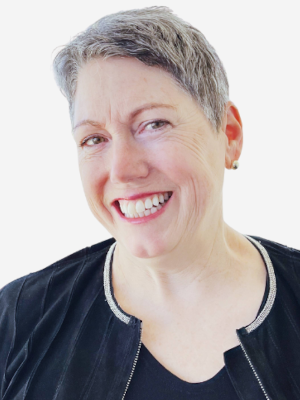This is one in a series of articles in our special report, “Women in Family Offices.” To view all the articles, click here.
In the complex world of the family office, women are stepping up as leaders, bringing their own distinct sensibilities to managing multigenerational wealth and family dynamics. In fact, wealthy families—especially those led by women—are choosing women to advise them because they feel another woman better understands what they’ve been through in life, from child-rearing to aging parents to messy divorces.
Related video: Watch our panel on Women in Family Offices
But women have also faced challenges in this male-dominated space, where they are still sometimes mistaken as gofers, or they face off with bullies.
We asked three female family advisors for their thoughts. Each had a lot to say about what women bring to the family office and how they approach the job differently.
Women bring empathy, sensitivity and humanness
Female advisors bring key qualitative skills that transcend traditional financial consulting, says Claire Sutton, FEA, registered clinical counsellor and founder of Claire Sutton Consulting Inc. in Vancouver.

“Research shows that there is no one definition of a family office,” Sutton explains. “Each family office is unique to the family it serves. Beyond managing financial assets, these structures require deep understanding of family dynamics, an area where women excel. Women bring the empathy, sensitivity and humanness.
“They lean into the family and take a few minutes to ask, ‘How are you doing? Do you want a cup of tea?’ That’s because they’re working with families, and family businesses are like any other family—they have black sheep, parents and special-needs kids.”
The key difference in communication styles is that men often focus on quantitative financial metrics and less on emotional or relational aspects, she adds. “Successful wealth preservation requires understanding both financial metrics and complex family relationships.”
When dealing with clients who have strong personalities, Sutton adds, “they may not appreciate what you’re bringing in. If they’re the boss of a company, sometimes it’s difficult to take advice about how to do something differently. You need to know where your line is, your ethics. That’s where women have to trust themselves.
“You’re not going to get along with everyone. Show what you can offer in terms of your skill set, but also understand that at the beginning, you’re building trust.”
They are not going to take your advice on Day One, she adds. “You have to earn their trust and form the relationship. Empathy goes a long way. You need to listen to where the family is and create space for them to feel understood.”
Taking on stereotypes
Like Sutton, Lucy Ryan believes every family office is different, and that fit with the family is key. As director of engagement and education with Vancouver-based Cole & Associates, a firm that provides family office strategy and design services, Ryan works primarily with inheritors (and pre-inheritors) who are in their 20s and 30s.

“We are helping them prepare to be wealth stewards,” she says, pointing out that the previous generations need not pass away before the next generation begins to step into important roles.
“We’re working with a lot more matriarchs than we are patriarchs, and a lot more women at the next generation level who are taking leadership roles and raising their hands to say, ‘I’ll be the one to lead this family office.’”
Ryan had to battle some bias early in her career, including assumptions that as a young woman in business, she was going to be the one to grab coffee or to set up a meeting. People would also question her age and experience.
“I’m very fortunate to work in a company where our CEO and founder is a woman and a lot of the people on our team are women as well,” says Ryan. “That just happened by hiring people who were the best suited for the role, and it’s wonderful that it ended up being so female-dominated.”
Family offices have deep, relationship-driven responsibilities, Ryan says. “Women are amazing at managing family dynamics, external stakeholders and complex interpersonal relationships. Those are the tough skills, not soft—navigating complex family emotions and conflicts with grace and strategic insight.”
While women sometimes might be overlooked, Ryan sees that as an opportunity.
“There’s a quiet advantage to being underestimated,” she says. “Sometimes the quieter person in the room has more pull when they do speak up.”
Working in a family office has enabled women to balance work while raising a family of their own, Ryan adds, whereas a traditional financial career is more limited in terms of flexibility with time. Her advice to other women starting out in this field is straightforward.
“Build your professional network,” she advises. “It may become your personal network, because so often I’ve found that those transfer into friendships pretty quickly. And don’t be afraid to advocate for your seat at the table. You might need to fight harder, but it’s a fight worth fighting.”
It’s a people business
Nancy Marshall, head of family office services at Prime Quadrant, a multi-family office in Toronto, emphasizes that while technical skills are crucial, the ability to connect with families across generations, understand their unique needs and provide holistic advice is what sets women apart in family office advisory roles.

She describes the work as fundamentally a “people business” where relationship-building and communication are as important as financial expertise.
“My team does a lot of governance, family preparedness and education, so people say, ‘Oh, you do all the fluffy stuff,’” says Marshall. “So I often say, “You mean, we do the important things.’”
If you ask a family what’s most important, they’re not going to say their return on investment, she adds.
“Most often they say, ‘It’s making sure that the wealth they’ve created doesn’t impact their family in a negative way,’ because wealth can be divisive. So for most of these families of wealth, it really is all about what’s going to work for the family. It’s making sure they’ve got generational legacy.
“Women are really well suited for having those conversations.”
Male colleagues can get caught up in technical jargon, she says, making it difficult to communicate effectively with clients, while women can explain complex financial concepts in simpler, more accessible language.
“We have an ability to take a really complex tax strategy and talk about it in a way that our clients understand,” says Marshall. “Women tend to create an approachable environment where clients feel safe asking questions. We invite collaboration rather than presenting as the sole expert.”
Marshall would like to see more women entering finance and the family office space.
“Women have unique qualities that make them exceptionally suited to family office roles when they combine professional skills with emotional intelligence,” she says. “You still need to have the chops and work hard, but I would encourage them to not think that it’s just about the numbers.
“All of the families we work with have a lot of capital, but it’s still a people business, and building-a-relationship business. I feel like as women, we really have a lot to add.”
The Canadian Family Offices newsletter comes out on Sundays and Wednesdays. If you are interested in stories about Canadian enterprising families, family offices and the professionals who work with them, but like your content aggregated, you can sign up for our free newsletter here.
Please visit here to see information about our standards of journalistic excellence.



